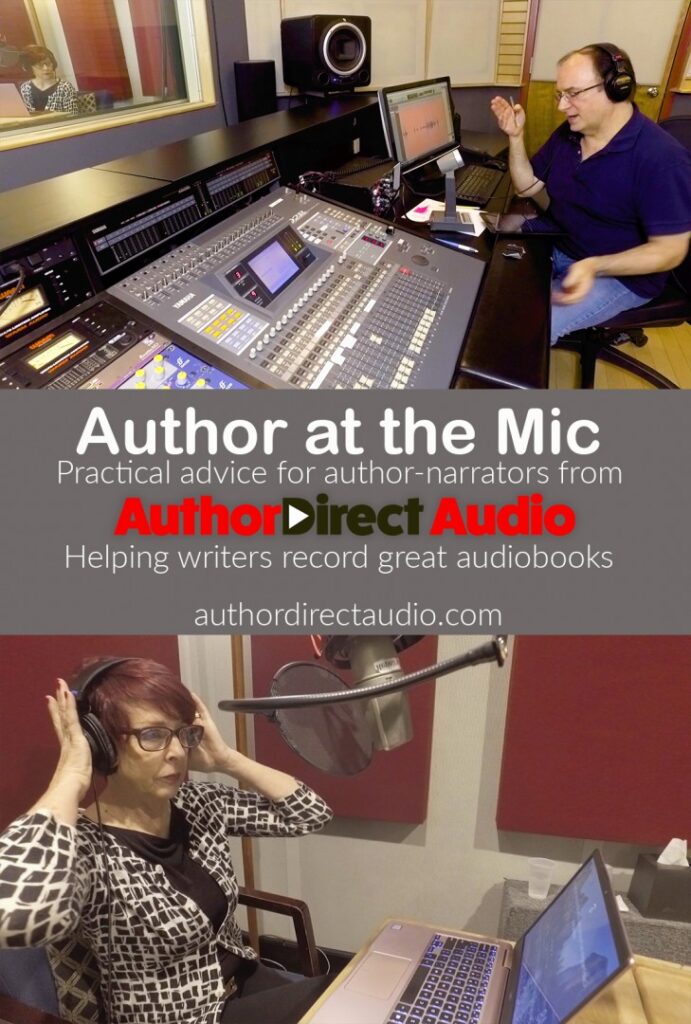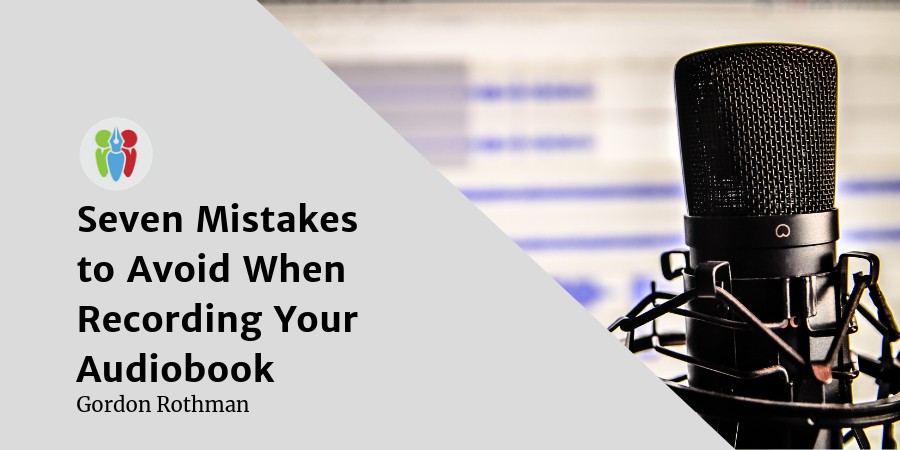Indies are empowered business people. Our income streams are limited only by our imagination, which is probably one of the reasons indie author audiobook narration is becoming so popular. Gordon Rothman, partner member from www.authordirectaudio.com, teaches us seven rookie mistakes to avoid when recording your audiobook.

Gordon Rothman, Audiobook Director
As a director and coach for author-narrators, I've heard all seven of these mistakes. If you’re considering narrating your own book, try to avoid them all. You'll have a much more pleasant studio experience and you’ll make a better recording. And as I pointed out in another blog, I think self-narration is best suited for NON-FICTION. In my experience, novelists are most likely to be successful if they’re also actors. So here are the seven most frequent mistakes to avoid when recording your audiobook.
DON'T wait until you get to the booth to try reading your book out loud.
I know you’ve heard the whole book in your head a thousand times. Reading it out loud is different. You really do want to try it before your studio date. If you can, read the whole book out loud. Even better, read it to someone else. You’ll remind yourself which key phrases and sentences merit extra emphasis.
Among the benefits of this step:
- You’ll probably find clunky passages that beg to be rewritten.
- You’ll probably find some phrases that just don’t work in audio. “He felt like he’d been run over by gnus.” Gnus? News?
- Even better, you’ll almost certainly find editing errors you’ve missed.
DON’T expect it'll be quick.
The time it takes to record your book will depend largely on your stamina and how often you need to fix fumbles. A good rule of thumb is that you’ll record around 25,000 words a day.
 DON’T expect it's going to be easy.
DON’T expect it's going to be easy.
Nearly every author I’ve directed has noted that it’s harder than expected – though they’re all glad they took on the challenge. The combination of mental focus and physical challenge will probably fatigue you. You may want to try to break up your recording dates, perhaps with a weekend before the first and the last sessions.
DON’T establish a tone and stick with it.
Unless your book has exactly the same tone in every paragraph, don’t read it that way. Your listeners want to hear YOU, so let them hear – gently – when you’re being nostalgic, despairing, playful, insistent.
DON’T guess at the pronunciation of unfamiliar words and names.
Your read-through is a great opportunity to see what you can’t say. Remember that mispronunciations hurt your credibility. If you’re working with a director, he or she can help you do look-ups, either before or during the recording. Directors all have a bag of tricks for finding the right way to say things.
DON’T affect speech you don't use in real life.
If you change your way of speaking to sound “more like a narrator,” you increase the distance between yourself and your listener. I often hear authors pronounce the indefinite article as “ay,” though in normal speech they say “uh.” (I had “ay” red balloon) It doesn’t sound “professional,” it sounds affected. I often hear “often” as “OFF-ten” even when the speaker doesn’t say that in conversation. Don’t go changing. Let’s hear YOU.
DON’T say every item in a list just like the first.
You know those European police sirens? EE-aw EE-aw EE-aw… That’s what it can sound like when every item in a list gets the same intonation. That sing-song sound can work IF your point is the monotony of the items on the list. “Every night you come home, change your clothes, heat a frozen dinner, wash your plate, sit on the couch, watch a ball game….” But if you want the listener to be engaged by the variety (here are eight different foods you can eat guilt-free!), have fun with it. Use different notes and melodies. High. Low. Rising. Falling. That makes it clear to your listener that YOU are not bored by the list.
Finally, a DO.
Do consider getting coached before you start, and consider having a director during your recording. AuthorDirect Audio provides services (training video and one-on-one Skype sessions) to help you prepare and record with confidence. I also direct recordings (in person by Skype) for both major publishers and independent authors.
Avoid these seven rookie mistakes when recording your audiobook. @gordonrothman #indieauthor #selfpublishing #IARTG #ASMRG #writingcommunity Share on XOVER TO YOU
Have you recorded your own audiobook? What tips and tricks did you pick up or what mistakes did you make?





You have a good point here!I totally agree with what you have said!!Thanks for sharing your views…hope more people will read this article!!!
Great post.
Wow! This article is full of respectable insight. I truly admire your genius, Gordon, sir. Now that you have armed me with this new found knowledge, I definitely feel more at ease about recording audio books. This is something that I have considered for my next children’s book. I am just about finished with the illustrations, and I can’t wait to take on the new challenge and opportunity of recording audio books.